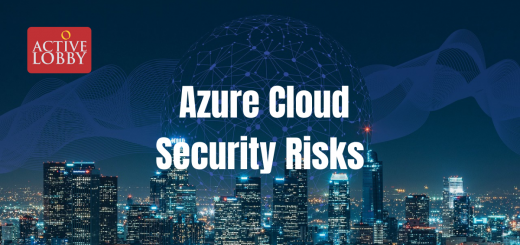Are cloud services free from cyber risk?

What is Cloud Computing?
Cloud computing refers to the delivery of services through the internet. This service includes applications for data storage, servers, networking, etc. Having cloud storage enables you to save your data and applications in a remote virtualized environment.
You can access your data and applications as long as you are connected to the web and the cloud also offers you the possibility to scale your storage, unlike physical storage mediums that were very commonly used some ten years ago or so. Cloud computing services are available in different service models based on Software as a Service (SaaS), Platform as a Service (PaaS), and Infrastructure as a Service (IaaS). The cloud deployment models are categorized as public cloud, private cloud, and hybrid cloud depending upon the nature of the cloud platforms and service providers.
What is Cloud Security?
Cloud security refers to a set of practices that are adopted to protect the applications, data, and other services that are associated with the cloud. It involves mechanisms to ensure the safe upkeep and protection of data and applications in the virtualized environment from deletion and theft. Cloud security has indeed become a concern for many end-users.
Unlike a local storage device, where you have complete control over your data, cloud environments, especially those that are based on multiple vendors are indeed a cause of concern for many end-users and clients. Local storage devices seem to be safer, but in reality, it is the other way round. Data stored on local storage devices are susceptible to attacks as they don’t have any security mechanisms to detect or diagnose a threat and neutralize it, unlike the cloud.
Cloud service providers have the latest and best-in-class mechanisms that ensure superior compliance measures. A cloud security report by Coalfire has found that the main cyber security challenges that are associated with the cloud are data loss, data privacy, credentials leakage, and compliance issues.
Let us now see some of the risks that are associated with cloud services.
Risks Associated With Cloud Platforms
1) Data Loss
According to the Cloud Security Report released by Bitglass, over 60 % of the respondents have reported data loss as their greatest concern. If you’re availing the services of a cloud service provider, and the cloud service provider is exposed to an attack or data breach, that can put a heavy toll on your applications, data, operations, and ultimately your trustworthiness as far as the customers are concerned. Therefore it is very important that you select a cloud service provider that is trustworthy and has a good track record.
2) Cyber Attacks
According to IBM’s ‘Cost of a Data Breach Report‘, 90 % of organizations experienced data breaches as their cloud usage increased. Cyber and malware attacks are becoming all the more common. Cyber attackers use various mechanisms like phishing, spoofing, Distributed Denial-of-Service (DDoS) attacks, Man-in-the-middle (MITM) attacks, etc to trespass into your applications and services, thus compromising your data and applications.
3) Public Cloud Networks
Public cloud services being spread across multiple geographies break the barriers of an operating zone and hence are easily accessible. Public clouds are offered by big cloud players and are cheaper compared to private cloud environments and hence are used by a large number of customers and organizations. The risk is more pronounced when these services are offered by multiple vendors.
4) Using Insecure and Outdated Applications
Even if your systems are a hundred percent secure, the applications provided by third parties can pose serious risks. Applications provided by third parties may contain malware that gets automatically installed in your system along with the application. Malware includes spyware, viruses, ransomware, etc that not only compromise your data security but also can adversely impact your operations. Ensure that application downloads are blocked unless and until the potential threats posed by an application are scrutinized by the cyber security team. Ensure patching of applications to ensure that your systems stay secure and updated.
Cloud Security Measures
1)Auditing your System
Periodic auditing of your IT systems can enable you to ensure better security compliance. Keeping your IT systems managed can thus identify any potential upcoming threats. IT and system audits deal with system security to identify risks and their mitigation. Conducting IT security audits can throw light on the risks and vulnerabilities that you are being exposed to. IT Audits can help you to identify unpatched software, compromised applications, and non-compliant systems.
2) Physical Security
Physical security involves a set of compliance measures to prevent any intrusion and direct access to your physical infrastructure that is associated with the data center. The different physical security measures are CCTV, UPS, alarms, etc. IT security compliance standards maintain that organizations should have mechanisms that can prevent direct access to their infrastructure. Organizations are also required to monitor and record the history of intrusions. To meet compliance standards, organizations are required to maintain an Intrusion Detection System (IDS).
3) Firewall
Firewalls are used to filter out suspicious traffic that tries to access your applications that are based on the cloud. Firewalls can keep your data behind the wall and thus prevent cyber attackers and hackers from creeping into your systems using malware. Having a stable and reliable firewall system will ensure integrity checks for data that enters and leaves the cloud. Firewalls can be either external or internal. An external perimeter firewall solution will check for the integrity of data, its source, and destination. Internal firewalls can thwart the threats that are from the organization itself, such as the compromised account of an employee, which serves as a loophole enabling hackers to get through your security mechanisms.
4)Encryption
Encryption is the process of encoding data or information. Encryption can enable the safe upkeep of your sensitive information. It can eliminate the possibility of malicious elements trying to peep into your data and using it against your customers. The original data or information is called plaintext and the encoded information is known as ciphertext. This process ensures that only the authorized parties can decipher the ciphertext and thus access the original information in the plaintext. Using a Virtual Private Network (VPN) can ensure that the data is encrypted as VPNs are private network connections and cannot be accessed from outside.
5) Multi-Factor Authentication
Multi-factor authentication can enable organizations to ensure that their data is not accessible to unauthorized personnel. The conventional usage of usernames and passwords cannot ensure foolproof security and is vulnerable to cyber-attacks and hacking. Stolen credentials enable malicious elements to access your confidential and proprietary data as well as login to those applications that run your daily business operations. Multi-factor authentication requires a user to provide two or more verification factors to gain access to applications, VPN, etc. Multi-factor authentication is done using a combination of mechanisms like answering a security question, One Time Passwords (OTP), Personal Identification Number (PIN), etc.
6) Manage and Monitor the Access
An organization should have proper levels of authorization assigned to each employee. This ensures that each staff has access to only those sets of applications or files that are under their operating domain. Access control mechanisms can thus ensure that an employee does not inadvertently trespass into applications or files that they are not authorized to. Having a strong Identity and Access Management (IAM) system in place ensures that you won’t be falling prey to the hands of cyber attackers who misrepresents their identity through means like phishing, spoofing, etc. Real-time monitoring can help you in identifying suspicious activities like repeated login failures, logging from devices with suspicious and unknown IP addresses, etc.
Final Thoughts
Cloud computing is one of the few technologies that have impacted almost all industries and services. Cloud is the stepping stone to digital transformation. So adopting the cloud is a matter of existence for organizations. Adopting the security measures that we covered here can indeed ensure you foolproof protection of your IT environment.
We at Activelobby provide you with cloud-managed and migration services. We provide you with the road map for making your way into the cloud. Our cloud services let you optimize your storage and computational requirements. Our cloud migration services enable your archives, inboxes, and workloads to have a smooth transit to the cloud. We provide platform management services to enable better monitoring, security, and troubleshooting of your cloud. Our services ensure the safe upkeep of your data.

